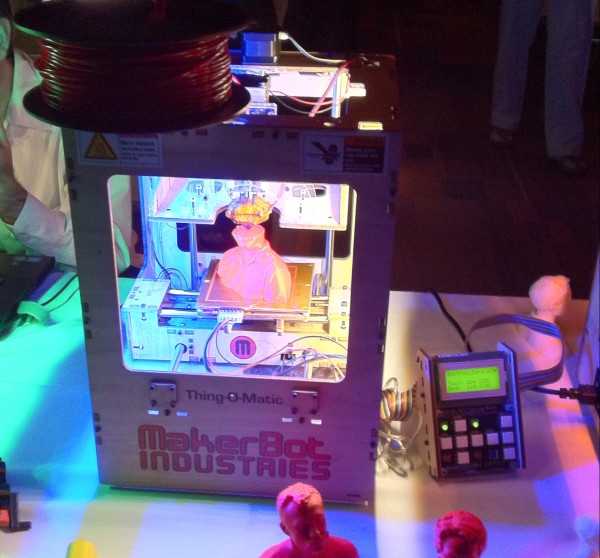As the popularity of bioengineering rises, so do its practical applications in medicine. Here are three of the current advancements.
1. 3D Printed Pills
Whether it’s from the news or from Grey’s Anatomy, many of us have heard of 3D printing and its potential to be used in the medical field, especially for tissue engineering. However, a team at the University of Central Lancashire in Preston in the UK is working on a new use for the 3D printer: making drugs. By using 3D printing to make the pills that physicians prescribe for their patients, the cost of medicines can be reduced. Also, pills can be made specifically for each patient. Instead of prescribing the same pill to a variety of patients, each with different body chemistry and body weight, the pills can be optimally adjusted to each individual patient. With the 3D printer, adjusting the pills would be a relatively easy process for medical professionals. This could be a huge advancement for personalized medicine.
Image Source: Oli Scarff
2. Skin-like Electronics
Dr. Todd Coleman’s research group at UC San Diego is working on making tiny electronic tattoos… well, sort of. His group is developing a flexible, electronic, ultra-thin patch that can non-invasively measure neural signals and transmit the data wirelessly. This technology could primarily replace detection systems such as EEGs, but it could also be used to measure other biological data, such as a patient’s vital signs. These patches are far smaller and more comfortable than the current wires and electrodes used to monitor neural signals or patient vitals and could improve patients’ experiences with the medical system and even continuously monitor patients’ conditions outside of the hospital in a way that does not inconvenience the patient. This could make tracking patient health easier and more accurate, in and out of the hospital setting.
3. Precise Proteomics
Applied Proteomics, Inc., a biotechnology company in La Jolla, has developed a method to very precisely determine the proteins expressed by an individual’s body. Why is this important? Well, the proteins expressed in the human body can give a snapshot of the health of the person. And these proteins can be used as biomarkers, or indicators of certain diseases. However, most protein detection methods are not precise enough to be used to accurately identify these biomarkers. But the automated method used by Applied Proteomics, Inc. is precise and consistent enough and yields results with just one drop of blood. The method is sensitive enough to measure proteins with different isotopes. It can be used to identify biomarkers for early detection of cancer and to “deliver the right treatment to patients before they get sick”. Currently, dealing with cancer focuses on treating its symptoms, primarily tumors. But by studying proteomics with the method developed by Applied Proteomics, Inc., physicians and scientists can look at what is causing the body to produce tumors. Also, by measuring the proteins expressed by a patient on a daily basis, their treatment could be extremely personalized, working with more of the disease fighting mechanisms already used by the body, and less drastic and difficult than many of the current chemotherapy methods. This could change the way physicians and society view cancer. Click here for an excellent TED Talk on this subject, by the co-founder and director of Applied Proteomics, Inc., Dr. W. Daniel Hills.










